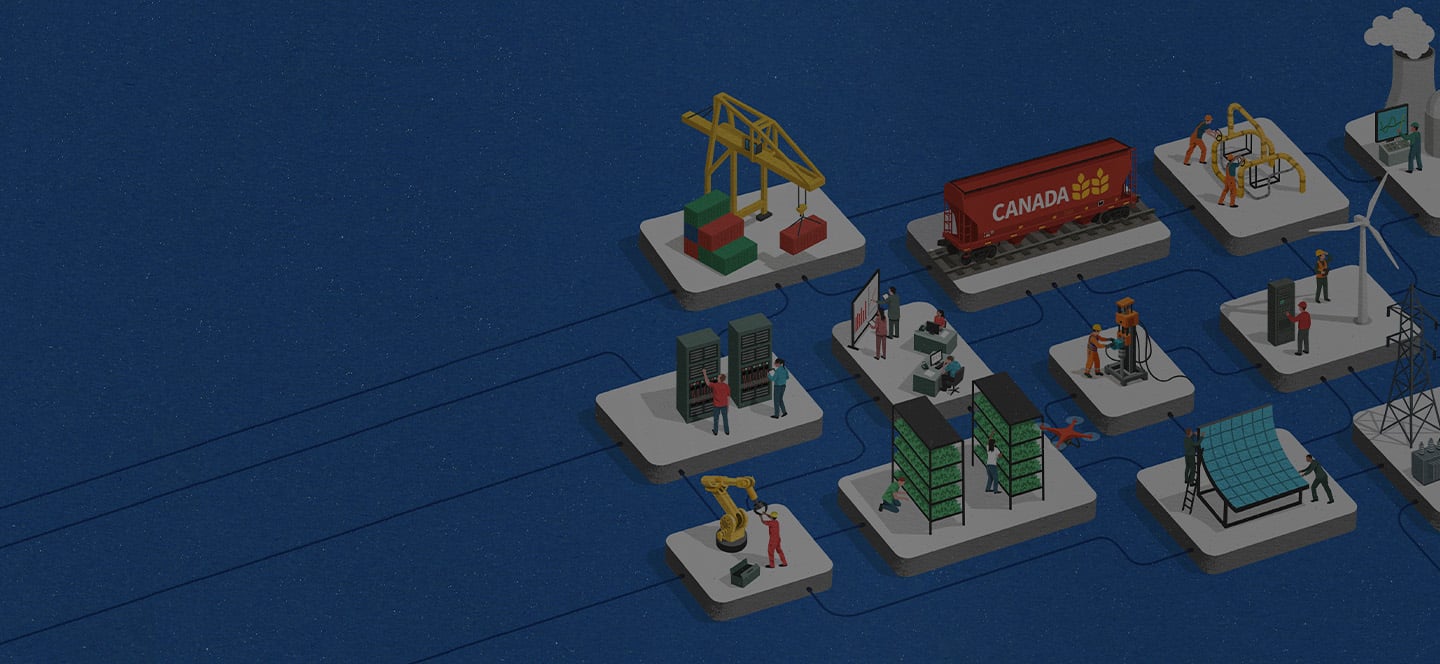The following op-ed was contributed to the Globe and Mail by Anne McLellan and John Manley. It appeared in the February 24, 2022 edition of the Report on Business.
The decisions of the governments of Ontario and Canada to invoke emergency powers to resolve the blockades at border crossings and the occupation of downtown Ottawa have generated much debate. Even though the orders have now been lifted, it is legitimate to ask whether the exceptional powers were indispensable to restore order.
Three propositions are less debatable. First, the right to protest in a democracy does not include the right to hijack part of the country’s critical economic and trade infrastructure. Second, the blockades of trade corridors imposed a large cost on the economy and damaged our global reputation as a reliable trading partner. Third, all levels of government share a responsibility in ensuring that there is the authority and the capacity to prevent any repetition of the recent scenario.
The blockades have come at a time when supply chains globally are already under pressure. The COVID-19 crisis has exposed the vulnerabilities of just-in-time delivery business models. Producers worldwide, including in the United States and Canada, have been reassessing and in some cases diversifying their supply chains to manage risks and meet their commitments to clients.
Meanwhile, under both the Trump and Biden administrations, Canadian exporters have faced uncertainty caused by protectionist U.S. trade measure such as arbitrary tariffs, “Buy American” policies and discriminatory tax preferences.
For years, Canada’s strong message for promotion of investment has been privileged access to the world’s largest economy. We worked hard to secure this access in three free-trade agreements with the U.S. since 1988 and the Smart Border Accord after 9/11. This message is now compromised. If the border is not seen as open and fluid, producers wishing to secure both supplies and markets may decide to invest in the United States, the larger market, rather than in Canada. Indeed, if this sentiment takes firm hold, the Canada brand will incur lasting damage.
Canada cannot afford self-inflicted wounds produced by blockades. For example, Michigan lawmakers are ready to pounce on recent events to support their campaign to “re-shore” manufacturing investment at the expense of our auto industry built on the strength of Canada-U.S. trade arrangements since 1965. To counter such a narrative, there must be a strong affirmation from our governments that our trade corridors are secure and that Canada is a reliable trading partner.
Local and provincial governments have a responsibility on the front lines. When roads and bridges, rail lines, pipelines, ports or other critical infrastructure are held hostage, it is also a matter of national interest and there must be national leadership.
Federal jurisdiction can properly be asserted under our Constitution, including under the trade and commerce power. The matter is one of peace, order and good government, with a need for federal authority to be exercised in co-operation with provincial and local authorities. Moreover, necessary federal action should not await the conditions of a national emergency. By then, the costs will already be too high.
Thus, we propose two measures.
First, the government should introduce in Parliament an act to protect Canada’s critical economic and trade infrastructure. Its purpose would be to establish clear federal authority and necessary powers to respond in the event of willful action to disrupt the vital operation of our economy.
Today, this must include protection against attacks on critical digital infrastructure such as the payments system. There should be scope for early injunction, imposition of hefty civil and criminal penalties, and seizure of assets, not unlike some of the measures that may now be invoked under situations of emergency.
Of course, the application of the law would be subject to close consultation with provinces and local authorities to ensure a co-ordinated response, safeguards to prevent abuse and parliamentary oversight to preserve transparency and accountability. Provinces should also consider whether they have requisite powers for their own response to disruptions.
Second, recognizing that authority to act is a necessary but not sufficient condition to prevent and resolve crises, governments should engage in an urgent discussion about law enforcement capacity, resources and training. Joint plans should be drawn up to close gaps, and protocols for joint intervention should be in place. In this context, consideration should be given to the creation of dedicated capacity in the RCMP that could be deployed quickly to support other forces on the ground.
With jurisdiction clearly established, powers immediately available and stronger capacity to enforce the law, the message to groups contemplating an abuse of their right to protest would be clear: Attacks on our critical infrastructure will not be tolerated.
The message to all Canadians and global partners would be equally clear that Canada is committed to safeguard its trade relationships, critical infrastructure and global reputation as a reliable economic partner.
Anne McLellan is a former deputy prime minister and minister of justice as well as public safety. John Manley is a former deputy prime minister and minister of industry, foreign affairs and finance. Both are senior advisers at Bennett Jones.
Subscribers can read the op-ed at the Globe and Mail website.

















